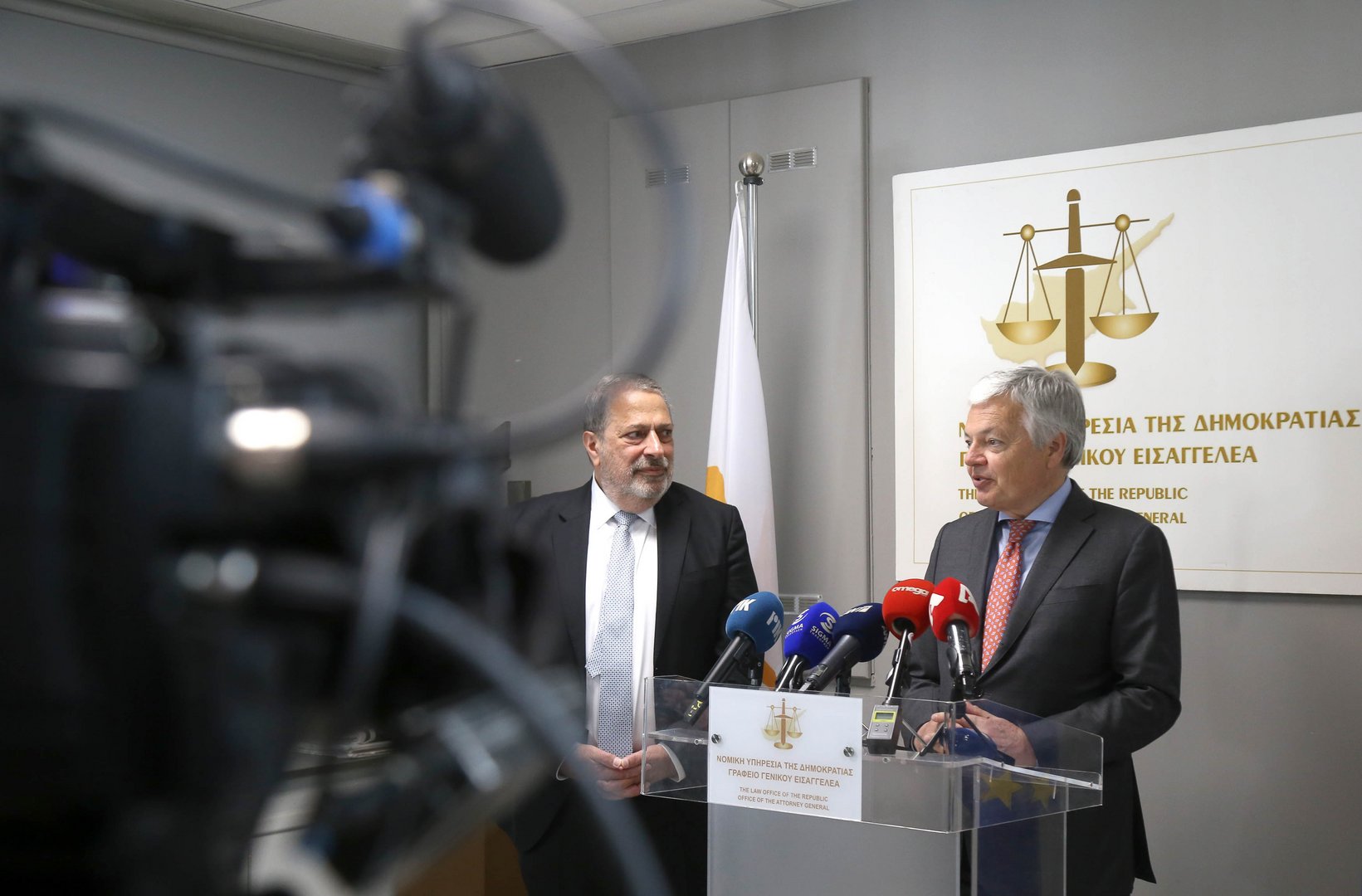The theories advanced by some lawyers with regard to the sanctions imposed by the United States and Britain were laid to rest by the European Commissioner for Justice Didier Reynders, during his two-day visit. Reynders showed what he thought about the argument that Cyprus had no legal obligation to implement sanctions imposed by the US and Britain, by ignoring it completely in his public statements and focusing, instead, on the need of the government to fully enforce all sanctions.
Although he was here primarily to discuss the European Commission’s report on rule of law for 2022 and ’23, which covers judicial reform, Reynders brought up the issue of sanctions in all his meetings and public statements. He spoke about “low level of asset freezes” in many member states, including Cyprus. While acknowledging that more than €100 million worth of Russian assets had been frozen in Cyprus, he said this “appeared to be low” considering that there were €24 billion worth of assets in the EU and some member-states had “frozen assets of 2, 3 or 4 billion.” The finance ministry subsequently, corrected the commissioner, saying the value of frozen assets was in the region of €1.5 billion.
Another argument used in Cyprus – that assets of Russian oligarchs had been transferred before EU sanctions were imposed – was addressed by Reynders, who said: “We are also trying to see what type of investigations could potentially be made about the situation around February 24 last year (when the war started) when it was possible for someone to see many assets leaving, not only from Cyprus but different member-states, at times, with the support of service providers at national level.” With regard to Cyprus this issue was a real concern, said Reynders, and Brussels was demanding “more accurate information about the reasons the freezing of assets is so low or for the fact that it can be increased.”
The visit was a wake-up call to the authorities, which must have been shaken out of their complacency by Reynders’ visit, the oft-repeated assurances to domestic audiences, that there was full compliance on sanctions, being openly questioned by the commissioner’s comments. Evidently, the government’s decisions and actions are being closely monitored by Brussels, which has also been applying pressure about judicial reform, the investigations into the citizenship scheme and the efforts to fight corruption. All these issues were raised by Reynders on his visit, during which he met the attorney-general, the minister of justice as well as deputies.
In a way, Brussels is doing the country a service by keeping a close watch on our government and institutions, although some in Cyprus could see this as meddling in domestic affairs. Perhaps this meddling is necessary, as it applies pressure on our authorities, which are notorious for prevarication in taking decisions and implementing them, often ineffectively. For example, Reynders acknowledged that no new citizenship applications were being accepted, despite the relevant law remaining in place, but also wanted the organising of investigations of earlier decisions on citizenship with the possibility of revoking them. It was important to define a clear procedure that would allow revising citizenship decisions, he said, something that could influence the infringement procedure against Cyprus.
AG Giorgos Savvides, to his credit, did not see the discussions with Brussels as meddling, but spoke of “excellent cooperation” with the justice commissioner that he was certain would continue in the future. In fact, Reynders said the two sides were working for the reinforcement of the attorney-general’s office, as the European Commission had recommended more human and financial resources being made available as well as digital tools for fighting corruption; he also wanted the fledgling authority against corruption to be offered more resources. It was through the exchange of views with the attorney-general that big progress would be made in the fight against corruption, Reynders said, and in Savvides he seems to have found an official he can work with.
This type of cooperation, which could be described as supervision by some, is imperative if the country is to tackle corruption and clean up its act. Heeding advice on the effective implementation of sanctions, judicial reform and fighting corruption should be welcomed, because the lack of know-how often lets the country down. It is also the only way of rebuilding the credibility of the country in Brussels, after the shabby dealings of the Anastasiades presidency.
There is a new government now, which was shaken by the sanctions imposed last month by the US and UK. President Nikos Christodoulides pledged to do everything in his power to restore the Republic’s reputation. Closely cooperating with the European Commission and following its recommendations would be a big step in this direction.






Click here to change your cookie preferences